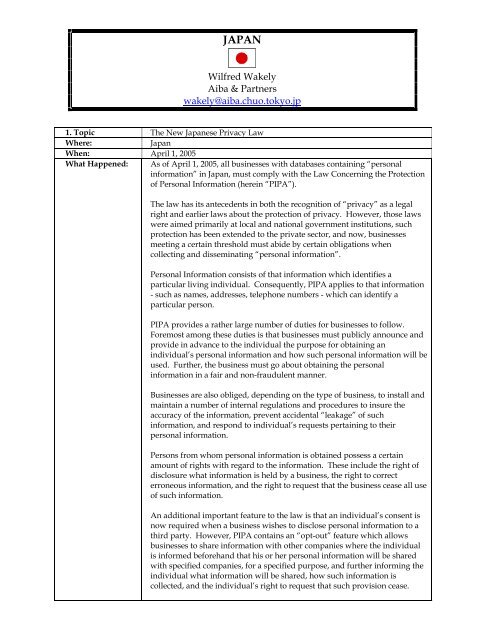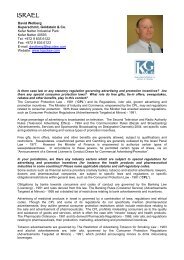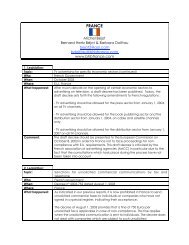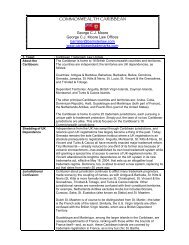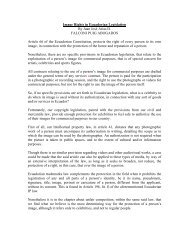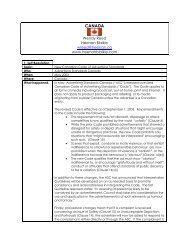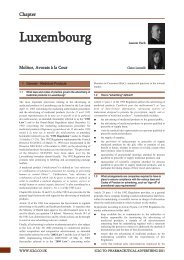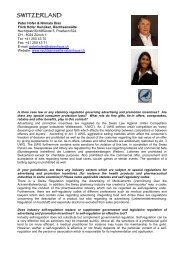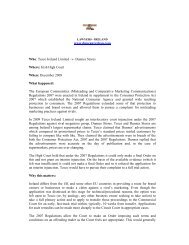list of contributors - GALA
list of contributors - GALA
list of contributors - GALA
Create successful ePaper yourself
Turn your PDF publications into a flip-book with our unique Google optimized e-Paper software.
JAPAN<br />
Wilfred Wakely<br />
Aiba & Partners<br />
wakely@aiba.chuo.tokyo.jp<br />
1. Topic The New Japanese Privacy Law<br />
Where: Japan<br />
When: April 1, 2005<br />
What Happened: As <strong>of</strong> April 1, 2005, all businesses with databases containing “personal<br />
information” in Japan, must comply with the Law Concerning the Protection<br />
<strong>of</strong> Personal Information (herein “PIPA”).<br />
The law has its antecedents in both the recognition <strong>of</strong> “privacy” as a legal<br />
right and earlier laws about the protection <strong>of</strong> privacy. However, those laws<br />
were aimed primarily at local and national government institutions, such<br />
protection has been extended to the private sector, and now, businesses<br />
meeting a certain threshold must abide by certain obligations when<br />
collecting and disseminating “personal information”.<br />
Personal Information consists <strong>of</strong> that information which identifies a<br />
particular living individual. Consequently, PIPA applies to that information<br />
- such as names, addresses, telephone numbers - which can identify a<br />
particular person.<br />
PIPA provides a rather large number <strong>of</strong> duties for businesses to follow.<br />
Foremost among these duties is that businesses must publicly announce and<br />
provide in advance to the individual the purpose for obtaining an<br />
individual’s personal information and how such personal information will be<br />
used. Further, the business must go about obtaining the personal<br />
information in a fair and non-fraudulent manner.<br />
Businesses are also obliged, depending on the type <strong>of</strong> business, to install and<br />
maintain a number <strong>of</strong> internal regulations and procedures to insure the<br />
accuracy <strong>of</strong> the information, prevent accidental “leakage” <strong>of</strong> such<br />
information, and respond to individual’s requests pertaining to their<br />
personal information.<br />
Persons from whom personal information is obtained possess a certain<br />
amount <strong>of</strong> rights with regard to the information. These include the right <strong>of</strong><br />
disclosure what information is held by a business, the right to correct<br />
erroneous information, and the right to request that the business cease all use<br />
<strong>of</strong> such information.<br />
An additional important feature to the law is that an individual’s consent is<br />
now required when a business wishes to disclose personal information to a<br />
third party. However, PIPA contains an “opt-out” feature which allows<br />
businesses to share information with other companies where the individual<br />
is informed beforehand that his or her personal information will be shared<br />
with specified companies, for a specified purpose, and further informing the<br />
individual what information will be shared, how such information is<br />
collected, and the individual’s right to request that such provision cease.


